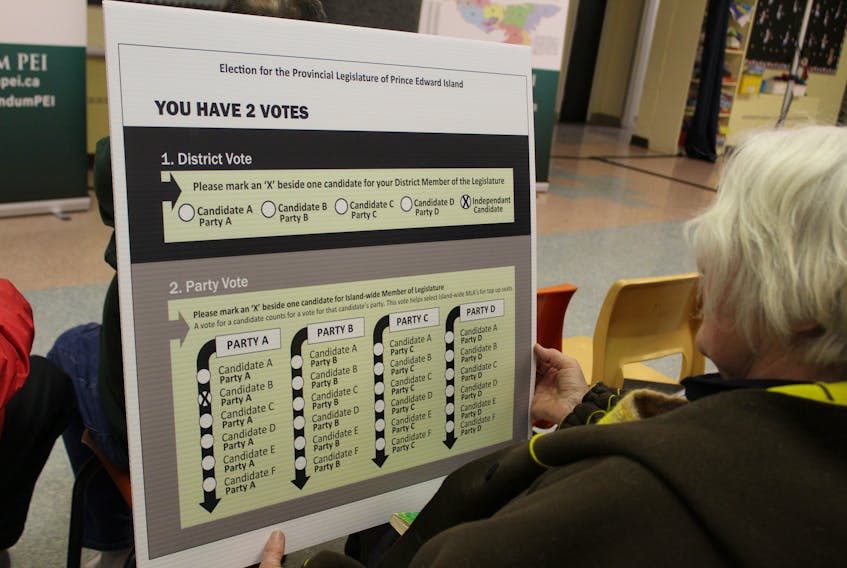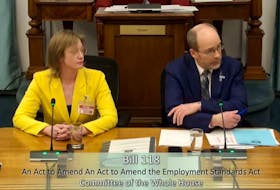ELLERSLIE-BIDEFORD, P.E.I. - Islanders may be looking for more answers than commissioner Gerard Mitchell is able to give when it comes to questions around P.E.I.’s electoral reform referendum.
Mitchell presented the first of four referendum information sessions to about 35 people at Ellerslie Elementary last week.
The next presentation, which will include an explanation of the referendum’s two options of first-past-the-post and mixed-member proportional representation (MMP), is scheduled for 6:30 p.m. today at Morell Regional High School.
Most of the public’s questions during the first presentation were around MMP and the list of nine MLAs chosen by parties to reflect the popular vote.
Questions ranged from “how do list MLAs get chosen” to specific ‘what-ifs’ such as how to replace list MLAs.
Several questions stumped Mitchell, simply because there’s just no legislation surrounding MMP on P.E.I.
“(The province) would have to put a lot of meat on the bones to answer (all) situations,” said Mitchell, a retired chief justice and former police commissioner who was selected as the province’s referendum commissioner.
The specifics will come if Islanders decide to adopt a new electoral system, he said.
For now, all there is to go on is what was proposed in the 2016 plebiscite – which is a little more than one page.
Legislation governing the current first-past-the-post system, on the other hand, covers hundreds of pages, said Mitchell.
Barry Balsom said he was worried power could become centralized under a MMP system. Under MMP, it appears no independent candidates would be able to run as one of the list MLAs.
“Is that not the essence of this debate in that we’re taking away the voters’ rights, individuals’ rights to run for a seat and we’re handing nine seats to political parties?” asked Balsom.
Balsom also had concerns around the education process on such a significant vote.
“I’m not convinced people will know the ramifications,” he said. “I don’t think that’s up to the ‘no’ side or the ‘yes’ side to explain how our Canadian parliamentary system is currently working. If people are going to make an informed choice they have to know how this works.”
The presentation also detailed rules around advertising for the referendum. Only registered groups may advocate for either side with strict rules about what would be considered advertising.
Gary Morgan said he supports first-past-the-post and is considering becoming more of an advocate.
“It’s been a one-sided debate up until this time. The people who support direct, truly representative democracy have not spoken for years. Even in the 2016 plebiscite, we were silent.”
Shelagh Young said she still had some questions following Thursday’s meeting but was optimistic that a change would be positive.
“I thought I had a working knowledge of MMP,” said Young. “I hope it’s not intimidating or frightening for people. There’s lots of time to work it all through.”
Presentations are also scheduled for Tuesday at Montague Regional High School and Thursday at Westisle Composite High School. Both will start at 6:30 p.m.









